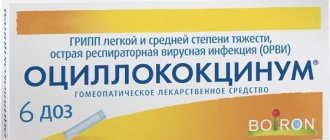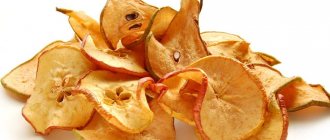Summer is a wonderful time of year, which pleases us not only with warmth, sea and flowers. Right now there is a great opportunity to eat fresh fruits and vegetables, stocking up on vitamins for the winter. And watermelons occupy a special place among them: aromatic, tasty, inexpensive and very healthy. Many mothers, wishing well, try to feed their baby this delicacy during the season. But, like any product, even this berry has its contraindications. And before you feed it to your child, you should know at what age your baby can be given watermelon and under what health condition.
Benefits for the child
Despite the fact that watermelon contains more than 90% water, during the growth period it diligently stores up useful substances. The tender pulp contains minerals, vitamins, fiber, carotene, sugars that have a beneficial effect on the child’s body:
- normalize the functioning of the muscular and nervous system;
- strengthen the heart;
- free from toxins and waste;
- stimulate intestinal peristalsis;
- relieve emotional stress;
- participate in the construction of new cells;
- strengthen the immune system;
- support water-salt metabolism;
- have a positive effect on the health of the skin, bones and eyes;
- promote weight loss in obesity;
- quench thirst and hunger.
All beneficial properties will manifest themselves in berries grown outdoors, without artificially stimulating growth and accelerating ripening.
Since January 2021, strict interstate standards have been introduced in Russia to control the quality of food watermelons. Sales sites are being organized in cities that meet new requirements for the storage of melons.
At what age to start
Watermelon is dangerous for children in the first year of life. A small organism is defenseless against “chemistry” and harmful microbes potentially present in the sweet berry. Weak immunity becomes the cause of an allergic reaction, and the immaturity of the digestive and urinary systems is a source of gastrointestinal upset and an unbearable load on the kidneys.
Dr. Komarovsky assures that watermelon is an adult food, which should not be introduced to before 2 years of age. Carefully, in small portions, it should be introduced into the baby’s diet in a softened form, and if loose stools appear, immediately stop taking it.
At what age can children eat pears?
So when can a child have watermelon?
Most doctors agree that the berry should not be given to a child who is not yet two years old. For a two-year-old child, 80-100 grams of this product per day is enough. Older children can eat about 150 grams.
If the watermelon turns out to be not of very high quality, then gastrointestinal distress in the baby will manifest itself within two days. If the child is still very young, then malaise may appear within two hours. At the same time, you will notice in your child lethargy, weakness, fever, headache, paroxysmal pain in the abdomen, vomiting, and upset stool. All this can lead to dehydration of the child's body.
Taking into account all of the above, a logical question arises: “Can children have watermelon in principle?” Do not forget that this berry contains many trace elements, folic acid and vitamins, as well as fiber. In addition, if the watermelon is ripe and juicy, then it contains natural sugars: glucose, fructose, sucrose
These substances are very useful for the child’s body and are easily absorbed by them. Of course, one cannot fail to note its exceptionally low calorie content.
Harm and contraindications
Watermelon is no exception to the list of foods that can cause allergies. Its manifestations may be limited to local symptoms:
- rashes,
- itching,
- runny nose,
- lacrimation,
- vomiting,
- diarrhea.
General reactions with signs of difficulty breathing, swelling, and anaphylactic shock pose a serious danger.
Therefore, introducing berries into baby food requires caution: half a teaspoon of pulp for the first time and monitoring the baby’s condition for 2-3 days.
Allergies can also be caused by nitrogenous fertilizers that are fed to melons for rapid growth.
Nutritionist Svetlana Titova compared buying a watermelon to a lottery - nitrates cannot be detected by taste or smell. But, following her advice, it is easy to reduce the risk to a minimum:
- do not buy early berries that appear on the shelves out of season;
- Avoid watermelon with glossy flesh of bright red color with a purple tint, the presence of hard whitish or yellow veins.
Advice. At home, you can calculate the nitrate level of watermelon in a simple way: place a piece of pulp in water. Cloudiness of the water after 15 minutes will indicate the safety of the berry, and a red color with a purple tint will indicate the presence of nitrates.
Nutritionist Ilona Vasilyeva recommends moderation and caution in relation to watermelons if the child suffers from:
- diseases of the pancreas and urinary system;
- tendency to flatulence and indigestion;
- diabetes mellitus
Watermelon is contraindicated for children with impaired urine outflow and congenital anomalies of the urinary system.
Allergic reaction to melons
How does an allergy to melons manifest? Allergies to melon and watermelon occur in people of any age who cannot tolerate ragweed blooms. Such a reaction of the body to an allergen is possible in two cases:
- with reduced immunity;
- in case of dysfunction of the gastrointestinal tract.
In case of disruption of the functionality of the gastrointestinal tract (dysbiosis, inflammatory processes), incompletely broken down food elements enter the blood, which causes disorder and imbalance of the entire system.
Symptoms of an allergy to melons include:
- itching and swelling of tissue in the lips and throat;
- cough and nasal congestion;
- contact urticaria.
After eating melon, an allergy may have the following manifestation:
- dizziness and headache;
- vomiting, diarrhea and nausea;
- attacks of suffocation.
What to do if after eating melons (especially melons) the child diarrhea? Does this indicate that he was poisoned? If you gave melons to a child after a year, and he developed diarrhea without other manifestations of an allergic reaction, it means that the gastrointestinal tract simply could not cope with processing the product.
Why does this happen? Melons are digested by the intestines, not the stomach. If you fed your baby melon immediately after eating, allergies have nothing to do with it: the product could not enter the intestines in a timely manner. The result was diarrhea due to undigested product.
We give correctly
Photo: Depositphotos.com. Author: Daxiao_Productions.
You can only cut a watermelon that has been carefully washed under running water and soap. Otherwise, pathogenic microbes that have settled on the peel will penetrate inside the berry.
Considering that the pulp near the crust accumulates more nitrates, children are offered only the core, carefully selecting all the seeds from it.
Traditionally, watermelon is served as a dessert at the end of the meal. But nutritionists recommend setting aside time for berries between meals. Given the pronounced diuretic effect, it is wiser to choose an afternoon snack for this purpose.
How to properly give peaches to your child.
Age norms
- A child after one year can be offered watermelon pulp, ground to a pulp, but only at the height of the season. This should be done extremely rarely, in minimal quantities (1-2 tsp) and with absolute confidence in the purchased watermelon.
- Children under 2 years old are given no more than 50 g of mashed pulp per day.
- At the age of 2 to 3 years, the portion increases to 100 g, and from 3 to 6 years - to 150 g per day in the form of finely chopped pieces.
Is it possible at a temperature
At elevated temperatures, the child’s body loses fluid. Watermelon (in the absence of contraindications) will cope with a number of symptoms associated with the disease: eliminate thirst, compensate for the deficiency of fluid and minerals, relieve intoxication and remove toxins.
Combination with other products
Nutritionists do not recommend combining watermelon with other foods. Fruit sugar, in the presence of undigested products in the gastrointestinal tract, begins to ferment, negating the beneficial properties of the striped berry. There is a feeling of heaviness in the stomach, rumbling, flatulence. Eating watermelon as a bite with bread, buns, cookies, as compassionate grandmothers often insist on, will not be beneficial. The melon berry also refuses to “make friends” with milk, which is manifested by indigestion.
General recommendations
Watermelon is useful not only for children; everyone can eat it if there are no contraindications. But to ensure that this berry does not cause harm, it is worth following the recommendations of specialists. Doctors repeat this tirelessly every year, but for some reason we constantly forget about them.
- Do not buy berries before the end of August, since in the earlier period they contain large quantities of nitrates, which are used for rapid ripening.
- Watermelon is known for its ability to accumulate various harmful substances, so do not shop near the road.
- The best place to buy watermelons is the market, where all products undergo strict pre-sale inspection.
- Do not agree to cut the fruit and do not take cracked ones, as microbes immediately penetrate inside.
- Before eating, wash the watermelon well, preferably with soap.
- Do not leave the fruit in the sun, as the rotting process begins quite quickly.
- Also, you shouldn’t store it for a long time; the very next day, the watermelon will do more harm than good.
- Do not eat the fruit if you are not sure of its freshness, and especially do not give it to children.
Useful: What to do if the child does not eat complementary foods?
By following these simple rules for purchasing and eating watermelon, you do not risk your health at all. Bon appetit!
How to choose
The taste of watermelon depends on the right choice, but the main thing is its safety for the child. Under no circumstances should you purchase:
- in places not intended for trade in food products: on the sides of roads, spontaneous markets, from the ground;
- with damaged integrity: punctures, cracks, cut out pieces to determine ripeness, cut and packed in cling film in supermarkets;
- before the start of the mass ripening season (there is a high probability that the watermelon is “overfed” with nitrate fertilizers).
During the “striped season”, offers are not limited to familiar varieties from the Saratov, Astrakhan, Rostov regions, Dagestan and Krasnodar. You can buy berries from Jordan, Turkey, Egypt, and China. Today, seedless watermelons, strange shapes and even yellow ones appear on sale. Which berry do you prefer?
The products of Russian farmers have advantages: control over the application of fertilizers, short transportation times to the consumer. For example, when growing the famous Rivne watermelons, no chemicals are used at all.
You can choose a ripe, and therefore juicy and sweet watermelon based on the following criteria:
- shiny and dense crust, difficult to scratch with a fingernail;
- bright contrasting stripes;
- dry ponytail;
- slight cracking sound when squeezed;
- dull sound when tapped;
- the presence of a yellow (earthy) spot on the side as evidence of natural ripening in open ground.
The “gender” of the berry increases the chances of purchasing a sweeter berry. Connoisseurs unmistakably choose “girls” who are distinguished by their wide side opposite the ponytail, leaving the “boys” with a convex “butt” to amateurs.
So, watermelon in a baby’s diet...
Watermelon
contains easily digestible sugars, microelements (magnesium, potassium, etc.), pectin. Watermelon contains folic acid. Along with useful substances, watermelon has the most attractive property for young mothers - it is low in calories, only 27 kcal per 100g.
Watermelon has a mild laxative effect due to its high fiber content.
.
Watermelon is a good diuretic and choleretic agent. Watermelon is good for diseases of the kidneys and urinary tract, liver and gall bladder.
To quench your thirst, watermelon is indispensable.
Since in the heat the body loses a number of microelements through sweat, watermelon restores losses not only in liquid, but also in microelements.
Unfortunately, violations of trade rules due to improper storage conditions lead to the fact that many mothers are afraid to give watermelon to their children
! And they do it right!
Dear mothers, from an age point of view, your baby can try watermelon from the age of one.
But only if the following conditions are met:
1. It’s better to take a watermelon from the garden – from your own, your girlfriend’s or your grandmother’s. The main thing is that you must be sure that the watermelon has not been overfed with nitrates.
2. If you don’t have your own bed of watermelons, buy only in season!!! Watermelon season begins in mid-August.
3. Never buy watermelons at roadside bazaars - heavy metals from car exhaust gases very quickly penetrate through the skin into the watermelon.
4. The watermelon must be whole - without cracks or cuts. Do not ask to cut a piece out of a whole fruit to see the color - microbes can easily get inside.
5. A “nitrate” watermelon can be recognized if the rind has soft areas, and the flesh is bright red in color with yellowish veins and white seeds.
Watermelons must be washed with a brush in running water. Since the largest amount of nitrates accumulates about 3 cm under the skin, only the pulp of the middle of the watermelon should be offered to the child.
Reasonable caution will help to avoid intestinal problems in your baby - do not rush to feed your child watermelon, give a piece within reasonable limits. Don’t give in to your child’s requests to eat more - 50 g is enough for children under 2 years old, 100 g is enough for children aged 2-3 years, and 150 g for children over 3 years old.
Pay attention to the seeds - they are slippery, the baby can swallow them, so it is better to remove the seeds yourself. Nursing mothers can eat watermelon within reasonable limits.
Consider your baby's age and the state of your gastrointestinal tract
Nursing mothers can eat watermelon within reasonable limits.
Consider the age of your baby and the condition of your gastrointestinal tract.











